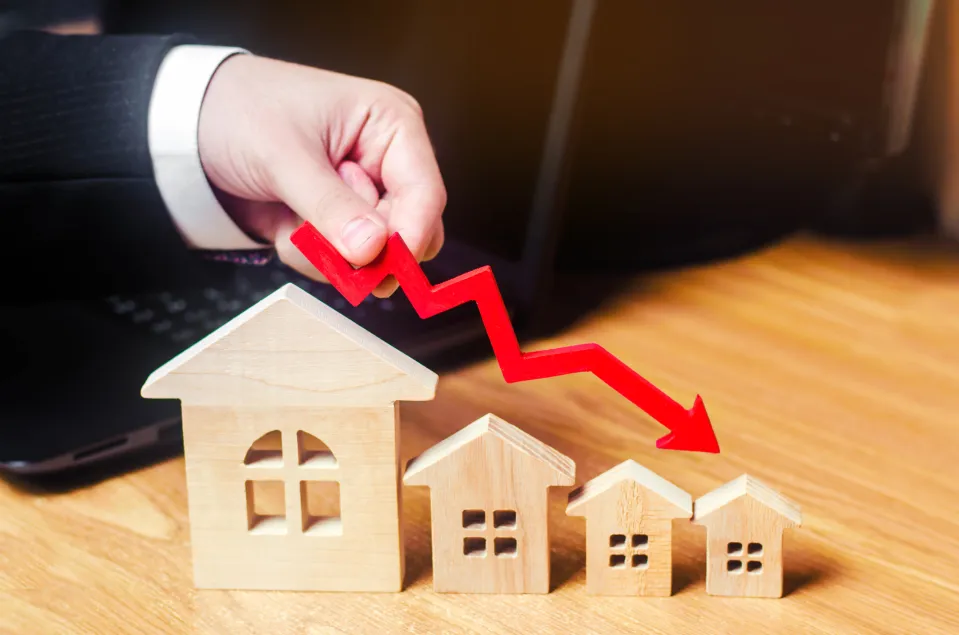Different real estate experts agree that the current high mortgage rates will lead to house prices falling more and more by 2023; the Fed could continue to be aggressive with the rate hike.
The impact of increases in interest rates by the Federal Reserve (Fed) are felt in every corner of the United States. The stock market falls, companies reduce their hiring, there are job losses and mortgage rates begin to rise more than expected. Each of these situations have caused buyers to backtrack on their home aspirations. Interestingly, the economy is complex and what harms some, benefits others. Now that there are fewer buyers in the country’s real estate market, that’s expected to cause home prices to decline by 2023.
The red-hot housing market is likely to “have to go through a correction” as “house prices were rising at an unsustainably fast level,” Federal Reserve Chairman Jerome Powell said at a news conference Thursday. last week.
For those who cannot fully understand it, it can be summarized that the current real estate circumstances do not favor practically anyone, neither buyers nor sellers. A year ago, houses sold in a matter of hours. There was a strong demand despite the ravages of Covid-19. Inventory was low (still is). Bidding on a home made sellers feel the power and privilege of increasing their home prices. Who can blame them?
Let’s not deny that it was an ideal opportunity for everyone. The seller: “I can sell my house quickly and at a great price”; the buyer: “I can have a cheap mortgage (about 3% a year ago), with affordable monthly payments for my house”. Still, the median home price reached almost $450,000, and at that rate it could continue to rise even higher. So it was time for the central bank to rein in American consumers, not just real estate.
So the Federal Reserve chose to raise benchmark rates. With this, as is evident, mortgage rates rise. And while house prices remain high, they are plummeting. But as much as a house is cheaper, it does not mean that the buyer will acquire it at a good price. With mortgage rates reaching nearly 7% , as much as prices drop, the interest expense is far beyond what many pockets can afford. The result: the houses are not sold.
Mortgage rates have more than doubled in the past year, rising from an average of 2.87% at this same time last year to 6.7% for 30-year fixed-rate loans in the week ending September 29, according to Freddie Mac. Those higher rates have made monthly mortgage payments 74% more expensive than they were this time last year.
“The slowdown in home prices that we’re seeing should help bring prices more in line with rents and other housing market fundamentals, and that’s a good thing ,” Powell said last week. “Longer term, what we need is for supply and demand to align better so that house prices go up to a reasonable level, at a reasonable pace, and for people to be able to buy a home again.”
House prices have been falling since a peak in June. And while they are still higher than they were a year ago, many real estate experts predict that they are about to fall much further.
“There is going to be a coast-to-coast recession in the real estate market. It’s going to be brutal,” Mark Zandi, chief economist at Moody’s Analytics, told Realtor. “No part of the market is immune.”
Places that saw the biggest price increases during the COVID-19 pandemic will experience the steepest drops , real estate experts say. Vacation areas are likely to see the biggest declines, as fewer buyers are likely to purchase second homes during an economic downturn.
Zandi believes home prices will fall 10% nationally over the next 12-18 months if the country avoids a recession. If it happens, he anticipates price declines could approach 20% from peak to trough in 2024.
